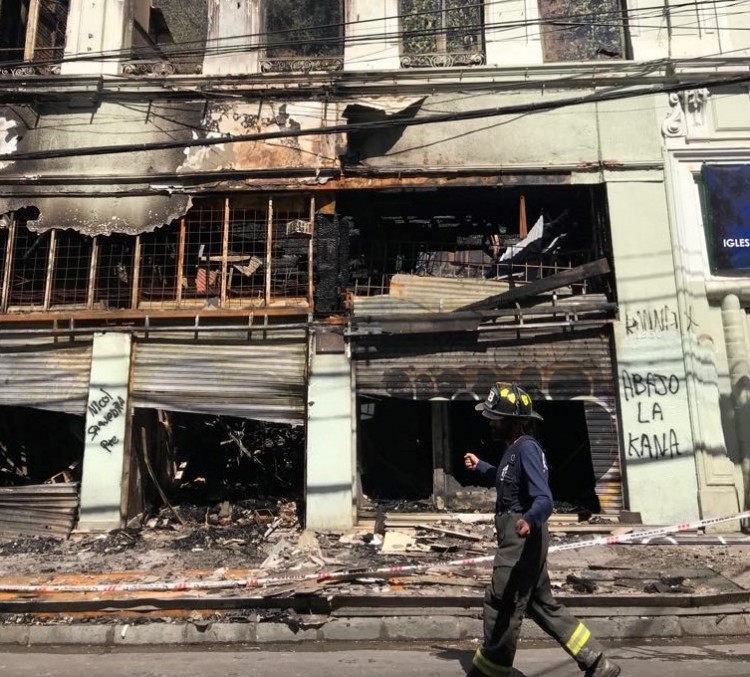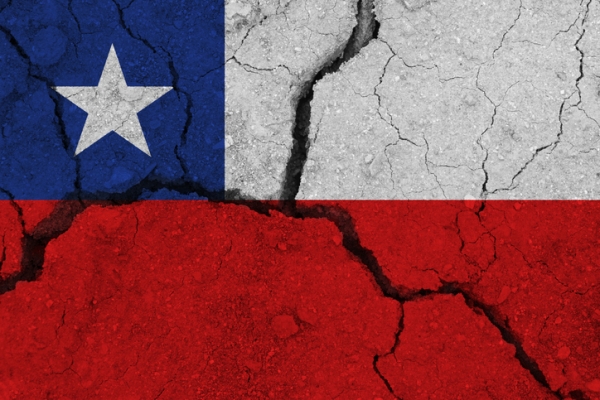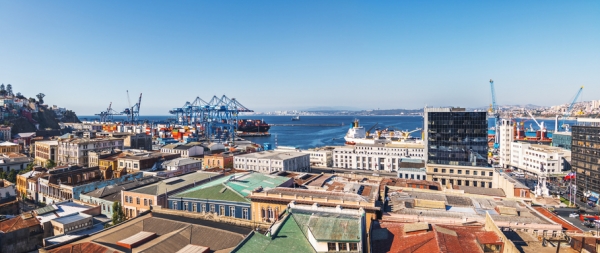Chile in crisis: What's the impact on the food industry?

Chile is entering its sixth week of violent protests that have led to over 20 deaths and thousands of injured. The unrest caught many by surprise - it has long been seen as one of the most politically stable and economically prosperous countries in Latin America - but cracks were not far from appearing in a country that, according to the World Bank, is in the top 10 most unequal countries in the world.
With a cost of living on a par with some countries in Western Europe, many Chileans struggle to make ends meet. The minimum wage is equivalent to around €400 a month while state pensions are meager and healthcare costs can be prohibitively high.
“Chile is the region’s poster child of neoliberal economic growth and progress, home to both the highest income and the lowest levels of poverty, a country that has embraced centrist politics and sensible electoral transitions since a return to democracy in 1990,” said John Price, director of Americas Market Intelligence (AMI). “If Chile is vulnerable to such anarchy and voter angst, surely the whole region must be.”
In the past two months, Ecuador, Bolivia and, most recently, Colombia, have also experienced violent unrest.
Slow Food: 'Chile's food system is unable to meet public needs'
For Sebastián Piñera, Chile's billionaire president who has a real-time net value worth of US$2.8 billion, according to Forbes’ rich list, quelling this voter angst that was triggered by a slight rise in metro fares in the capital Santiago, has not been easy.
Government proposals have so far failed to put an end to the unrest and the protests continue to have a significant impact on the country’s economy - the Chilean peso plummeted to a historic low earlier this month - and the daily life of its citizens.
According to non-profit organization Slow Food Chile, the country’s food system is responsible for sparking at least part of the public anger.
“Urban families do not have access to clean, healthy food at prices proportionate to their spending capacity,” it said. “On the other hand, farming families are unable to sell their produce at a fair price. At the same time, a lot of food is lost post-harvest, in warehouses and along the distribution chain.
“This demonstrates the inability of the agricultural system and large retailers to meet these needs. This crisis underlines the urgency of making important changes to our country’s food policy.”
Port strikes hit fruit exporters
This week, dockworkers at San Antonio, the main port for fruit exports, announced a fresh two-day strike, joining wider, nation-wide strikes, because the government has not listened to its demands. The strike comes as Chile enters the summer harvest season.
The food industry is also being impacted by the ongoing unrest.
This month, the Chilean Chamber of Commerce, National Agricultural Society (SNA) and the manufacturing association (SOFOFA) adjusted downwards their economic outlooks for 2019 and 2020, and both the SNA and SOFOFA called for an end to the violence.
In an open letter signed by many trade associations, including food and drink groups Alimentos Chile, Salmon Chile and Supermercados de Chile, SOFOFA said was backing the government's call for a peace agreement to restore public order and promote social justice. It also joined calls for a new constitution; Chile's current constitution dates from 1981 when the country was governed by right-wing dictator Augusto Pinochet.
Francisco Gana, head of the department of studies at the SNA, said the agricultural sector has been more impacted by Chile’s ongoing drought than the unrest “given that demand for food is more inelastic [than in other sectors]”. However, Gana noted there was “slight uncertainty in the logistics of some agricultural sectors”.
Retailers suffer lootings and arson
Further down the supply chain, the country’s retail sector has been hit hard by the violence.
This month, Walmart Chile filed court orders seeking police protection because as lootings and arson attacks had caused it “enormous economic damage”. Walmart said the government had not fulfilled its duty of providing security and public order to allow the hypermarket to freely exercise an economic activity, a right enshrined in the country’s constitution.
The US-owned hypermarket chain enjoys a 44% market share in Chile under its brands Lider, Express, aCuenta and Ekono, according to Santander.
The company said it would not seek damages from the Chilean government but said in a statement, that it has undergone 1,200 episodes of lootings and fires at 28 stores. Seventeen of its some-400 premises in Chile have been destroyed.
Support available to SMEs
Many small and medium-sized enterprises (SMEs) have also suffered damages.
According to figures from the Ministry of Economy, Development and Tourism, 4,782 SMEs suffered damaged infrastructure, equipment or merchandise in the last week of October, although the records take into account material damage only and not the impact on sales or lost activity.
According to Chilean business agency, Innovación Chile, several initiatives can help the country’s start-ups and SMEs get their businesses back on track – it has published a list here - but the information is not reaching those who need it.
No short-term solution in sight
In any case, there is no quick-fix solution and, according to John Price of AMI, little reason for macro-economic optimism in 2020 in Latin America in general due to the global trends of low commodity prices and protectionism.
“Social divisions and angst in Chile will not be undone by legal revisions,” he writes in a blog post entitled Political turmoil in Latin America should worry investors.
“What the underclasses really desire is respect and equality from higher economic strata, a societal change that may take another generation or two to inculcate.”











